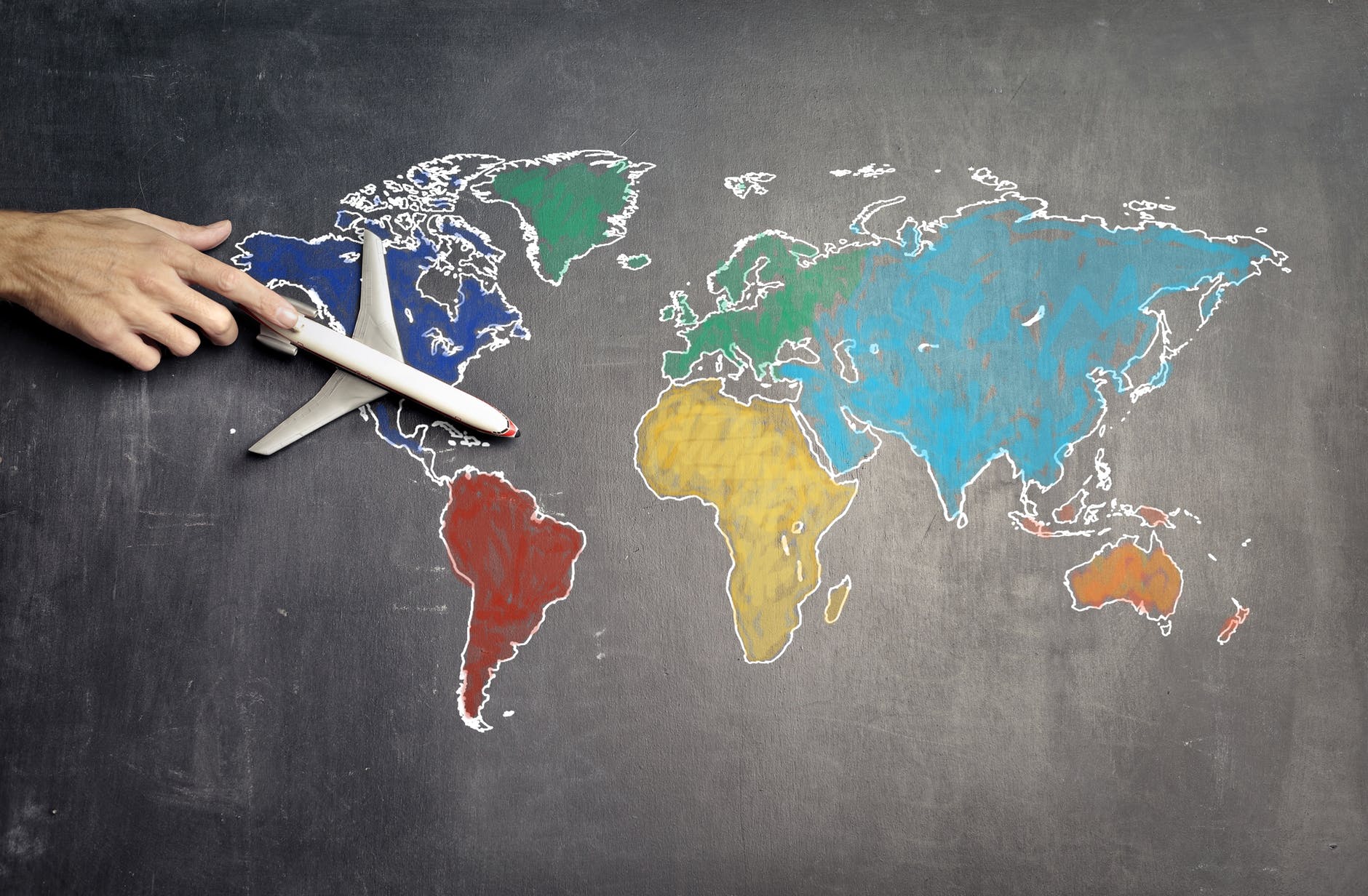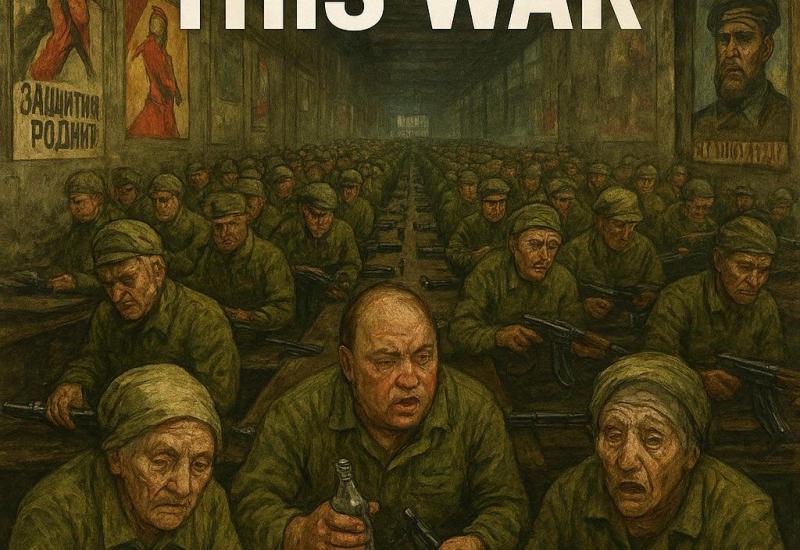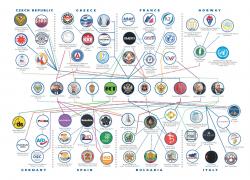Rethinking Globalization: The Chinese Threat
Throughout the year, I have read numerous articles arguing about the harmful effects the coronavirus will have upon globalization. These tend to focus on how our current crisis is not only delegitimizing international institutions, such as the World Health Organization (WHO) but also encouraging nations to rethink the validity of their trade agreements and political accords. On this matter, The Economist published an article entitled "Has COVID-19 Killed Globalization." It argues that numerous nations are reconsidering scaling back their trade openness, especially with China. From that article's perspective, this is a profoundly worrying affair that could escalate into more severe isolationist measures. Therefore, it ends up arguing that the virus could potentially "kill" our international system, creating a geopolitically unstable and economically fragile future for our nations.
From my perspective, the COVID-19 crisis did not cause globalization’s issues. It is instead the consequence of a deeper threat: China. For decades, the Chinese government has been implementing a series of policies that increase its country’s economic performance only at the expense of harming neighbors and trade partners. These are usually known as “beggar-thy-neighbor policies,” which encompasses China’s currency manipulation, unfair trade agreements, and damage to global public goods, among others. To me, this became evident with the COVID-19 crisis, as there is no indication that China will compensate other countries for the nine trillion-dollar global economic cost of the coronavirus.
From Globalization to Hyper-Globalization
Globalization has taken many forms throughout the decades. For instance, in 1944, the world radically changed its type of globalization with the signing of the Bretton Woods agreement. At the time, nations feared the return of trade wars or even another world war. They decided to solve this problem by crafting an agreement that focused on stabilizing the international monetary system. Bretton Woods, therefore, created a type of globalization characterized by a series of financial constraints for governments and businesses, from limiting the flow of capital among nations to fixing exchange rates to the gold standard. This led to the creation of a set of international financial institutions, such as the World Bank Group, the International Bank for Reconstruction and Development (IBRD), and the International Monetary Fund (IMF).
The Bretton Woods regime lasted until the early 1990s, right around the fall of the Soviet Union. Since then, the world has moved towards a new type of globalization, often referred to as hyper-globalization. This is a term first introduced by Dani Rodrik, an economics professor at the Harvard Kennedy School of Government. It entails a type of globalization focused on increasing economic efficiency by eliminating the transaction costs of international trade. The ultimate goal of hyper-globalization is to economically integrate nations by eliminating their tariffs, trade barriers, financial regulations to the flow of capital, and other transaction costs of international trade.
As a result, the world has been moving towards a state of deep economic integration since the 1990s. In North America, the North America Free Trade Agreement (NAFTA) was designed to eliminate trade barriers between the United States, Mexico, and Canada. In Europe, its economic integration reached its peak with the creation of the Eurozone in 1999. This is a monetary union that includes 19 out of the 27 states of the European Union. Finally, in the Eastern Hemisphere, countries like China, as well as the four "Asian Tigers" - Hong Kong, Singapore, South Korea, and Taiwan – have produced miraculous economic growth by redirecting their economies towards fulfilling the needs of the world's economy.
This movement towards hyper-globalization has been extremely beneficial by most economic accounts. It could even be considered the world's best anti-poverty program in history, as it has lifted hundreds of millions of people out of extreme poverty in China, Taiwan, Korea, among others. It has also empowered the private sector of developed nations, allowing it to grow beyond its nation's borders. It has empowered consumers in the west, providing them with numerous products at lower prices. And ultimately, the philosopher Emmanuel Kant once said that commerce among nations is incompatible with them making war. If this is correct, which I think it is, then I could argue that hyper-globalization has also made our world more peaceful.
China’s Misdemeanors
Yet, our current international system has its problems. For instance, it has produced dramatic distributional effects, especially in developed nations. In these countries, their increases in economic efficiency came to the expense of the deterioration of manufacturing jobs and other traditional jobs. Because of it, hyper-globalization has been relatively prejudicial for middle-class workers in the United States. Especially those that now need to compete with China, Taiwan, Mexico, and other economies with lower labor costs.
Nevertheless, I think China’s “beggar-thy-neighbor policies” is the biggest issue with our currency hyper-globalization. As mentioned, these policies can improve the economic performance of a nation only to the extent they harm another nation's economy. This is what OPEC countries have historically done by limiting oil production to earn monopolistic rents. Or what tax havens cause with their artificially low corporate tax rates and bank secrecy laws.
This is what China has been doing for decades. For instance, China has been manipulating its currency by devaluating the yuan. Thus "exporting" unemployment to other countries. It has also been restricting trade of its rare minerals to earn monopolistic rents from them. It has also severely deteriorated the environment, which is a global public good. China, alone, pollutes more than the United States and Europe combined. Overall, while China is not the only country that incurs in these negative spillovers. It is perhaps the only one that commits all of them so forcefully. And paradoxically, it has been the country that has benefited the most by our current international system of hyper-globalization.
As a result of this behavior, numerous nations are scaling back their trading with China and other nations. Specifically, these nations realized that by being overly dependent on Chinese imports, they could jeopardize their national security. For example, if the strategic economic sectors of a nation are overly dependent on imports from China. This would inhibit this nation from setting goals, making decisions, or mobilizing resources without depending on China's approval. Therefore, diminishing the diplomatic strength of a nation. This is why the United States should be worried about China's considerable financial leverage upon most Latin American governments. Similarly, this is precisely the risk that encouraged the European Union to pursue its new economic plan known as "Europe's strategic autonomy." With this plan, the European Union would regain its capacity to "make decisions in matters of foreign policy... together with the material wherewithal to carry these through." China’s behavior has, therefore, diminished globalization considerably more than the virus.
Finally, this became evident with the COVID-19 crisis. China, for instance, could have managed the COVID-19 crisis in a responsible manner. It could have alerted other nations earlier. It could have stopped all flights from Wuhan earlier. It could have told the truth about its number of cases. And while I am not arguing that China could have prevented the virus by itself. It could have acted responsibly, potentially saving thousands of lives, millions of jobs, and trillions of dollars. It simply chose not to do so, and a sound international system should have vigorously condemned such irresponsible behavior. This is why nations are reexamining the validity of globalization. They are realizing that negative spillovers are indeed a worrying issue.
In this sense, true advocates of globalization should stop arguing that COVID-19 is "killing" our current international system. It is not. The COVID-19 crisis is merely illustrating one of its main issues: China’s behavior. This is making our current international system, known as the hyper-globalization regime, neither desirable nor sustainable for many countries. We must urgently tackle this problem, and whether we do it internationally, regionally, or even domestically is irrelevant. What matters is that we need to solve it. Not because globalization as a whole is flawed, but because solving this problem is our only way to save and advance globalization.
By Jorge Jraissati
Jorge Jraissati is the president of the Venezuelan Alliance. Graduated at the Wilkes Honors College, Jorge is an economist, political leader, and a fellow at the Abigail Adams Institute. Jorge has been invited as a guest lecturer to over 20 universities, such as Harvard, NYU, and Cambridge.




















